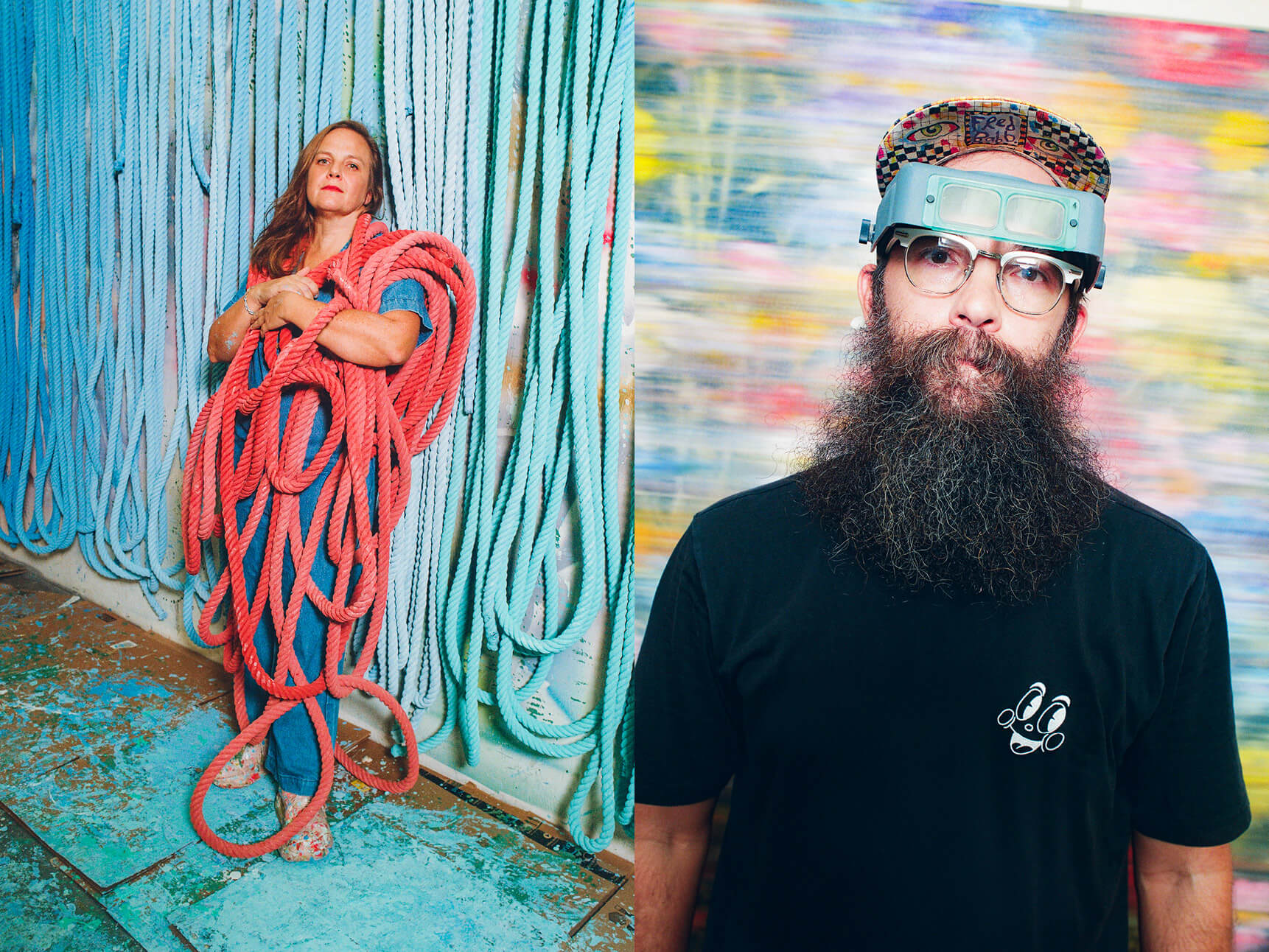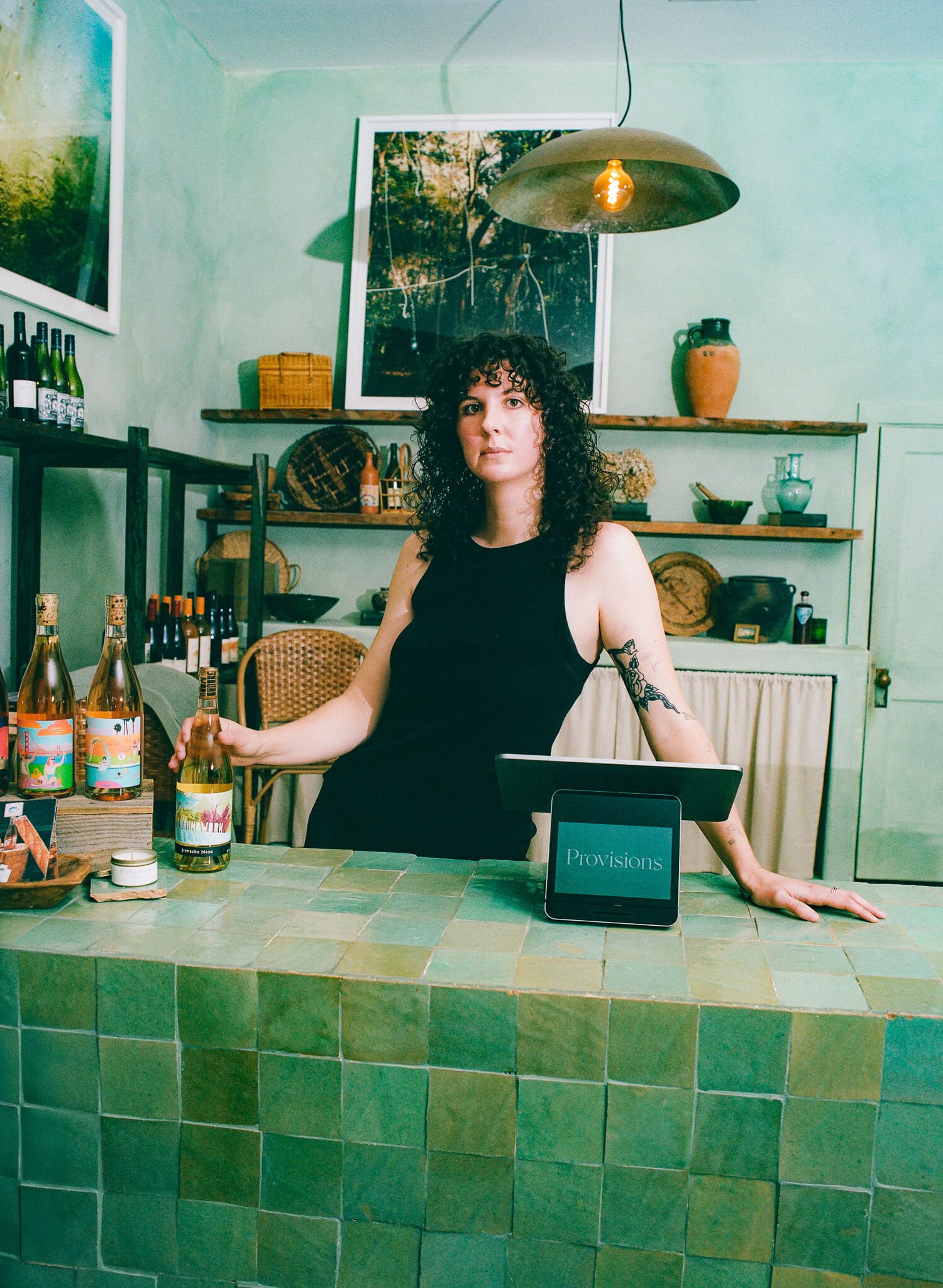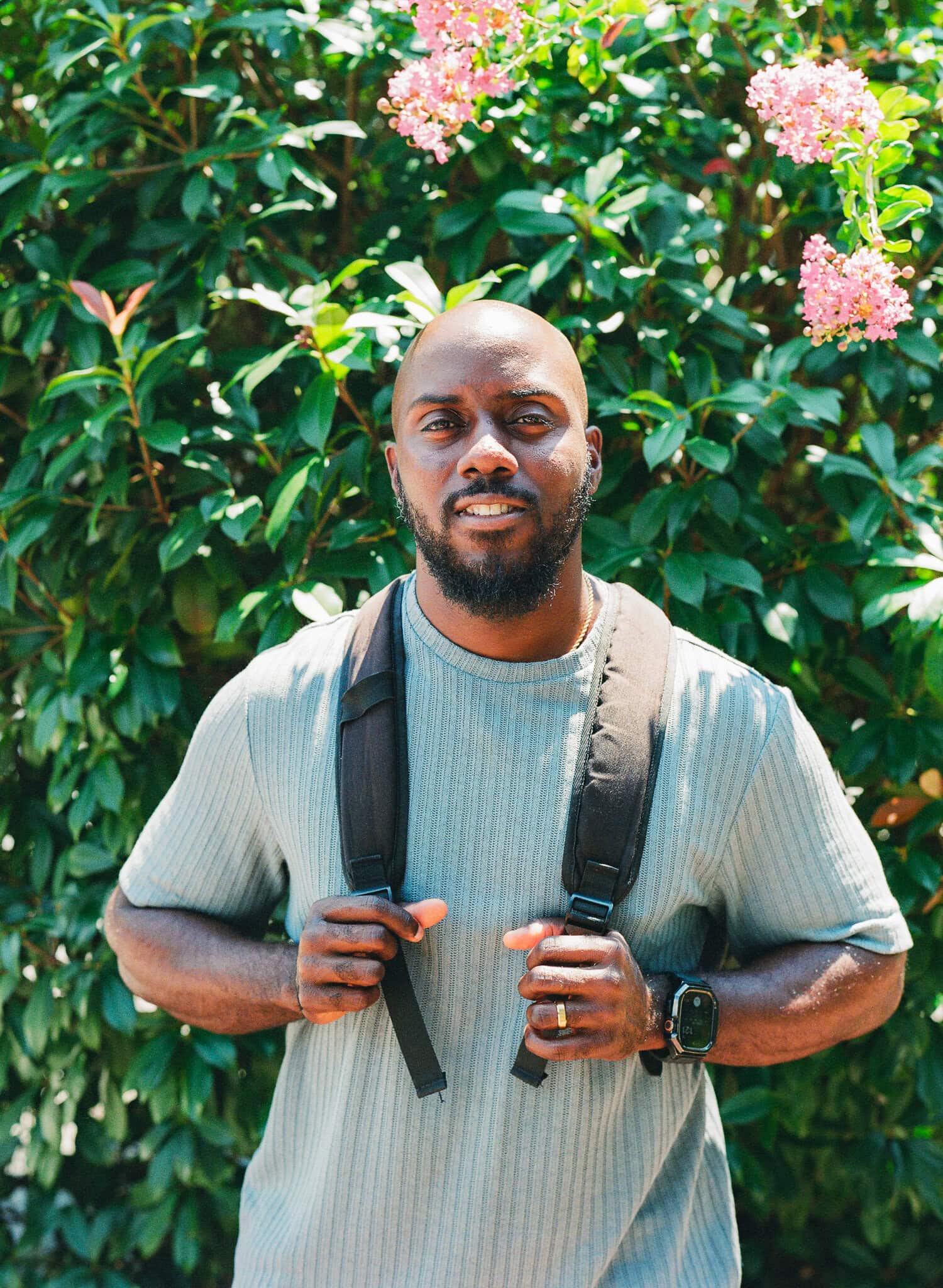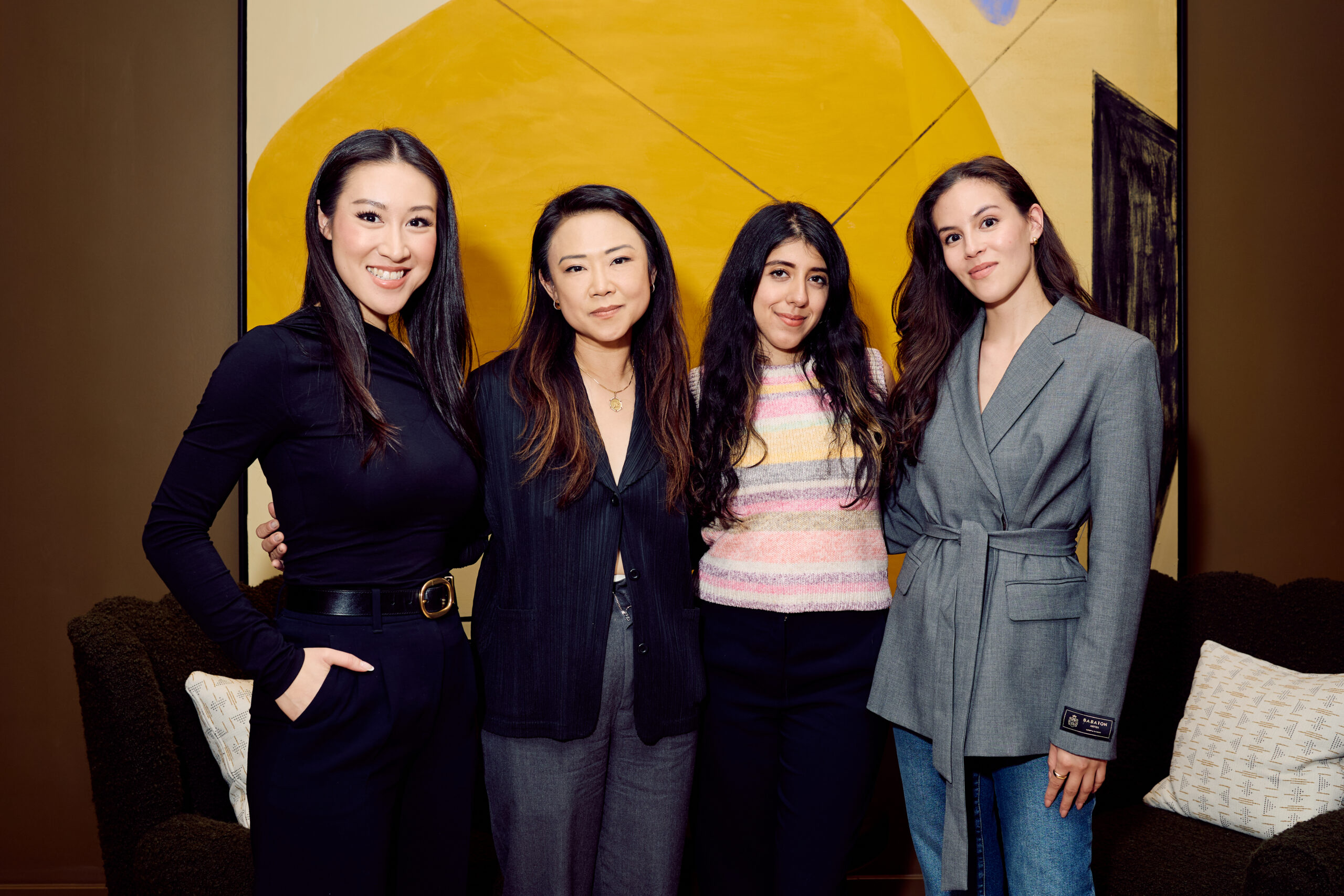
On Wednesday, April 23, guests gathered at The Malin NoMad for a Women in FinTech panel, hosted by Monday Girl during New York FinTech Week 2025. Moderated by Monday Girl co-founder Istiana Bestari, the conversation featured Alinea co-founder Anam Lakhani and Block senior project manager, People PMO Hayley Beers, who offered candid, uplifting insights on succeeding in FinTech.
Monday Girl is a platform for women and those who identify as she/her, offering monthly networking events to foster leadership. Alinea, co-founded by Lakhani, is an AI-powered app designed for first-time Gen Z women investors. Block—formerly Square—is a mobile payment service focused on economic empowerment.
“I know you all are doing such cool and different things,” Bestari began. “So my challenge for you today after the conversation is to go up to someone new, introduce yourself. You never know where a single connection might take you. Today, we’re celebrating the moves that women are making in FinTech.”
Both panelists then discussed what inspired their careers and how others can follow their path.
“I grew up seeing my dad invest in the stock market but had no idea how to do it,” Lakhani said. ”However, I got to college, interned on Wall Street, and spoke to my female friends on the same path and realized they also had no idea. I became fascinated in why the gender gap of investing existed. I think the longer you delay conversations about money and the less mainstream it becomes, the harder it is to take advantage of the stock market and build wealth.”
Lakhani’s goal with Alinea was to demystify investing for others.
“Having come from the nonprofit space, I was drawn to the issues surrounding wealth disparity,” Beers said. “I previously worked for Feeding America. Equity and access have always been top of mind. Block’s mission of economic empowerment spoke to me on so many levels.”
Beers, in her previous role as diversity lead at Block, worked to bridge gaps between men and women, and better opportunities for people of color. She also noted Block’s role in supporting artists.
“It feels incredibly unfair that a lot of people don’t have the same sort of access and information to build wealth for themselves and their families,” Beers added. “We’re providing them with the necessary education and tools.”

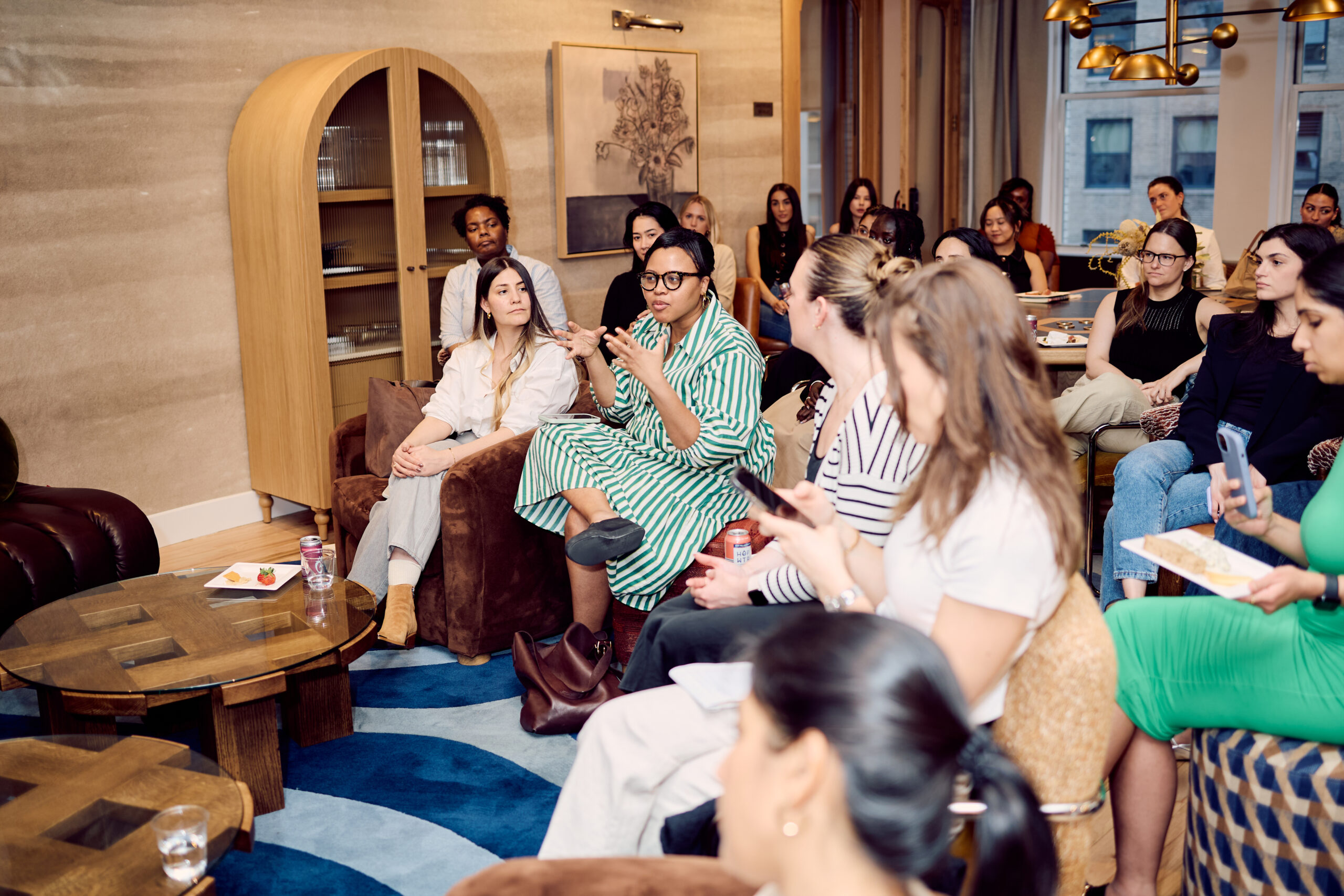

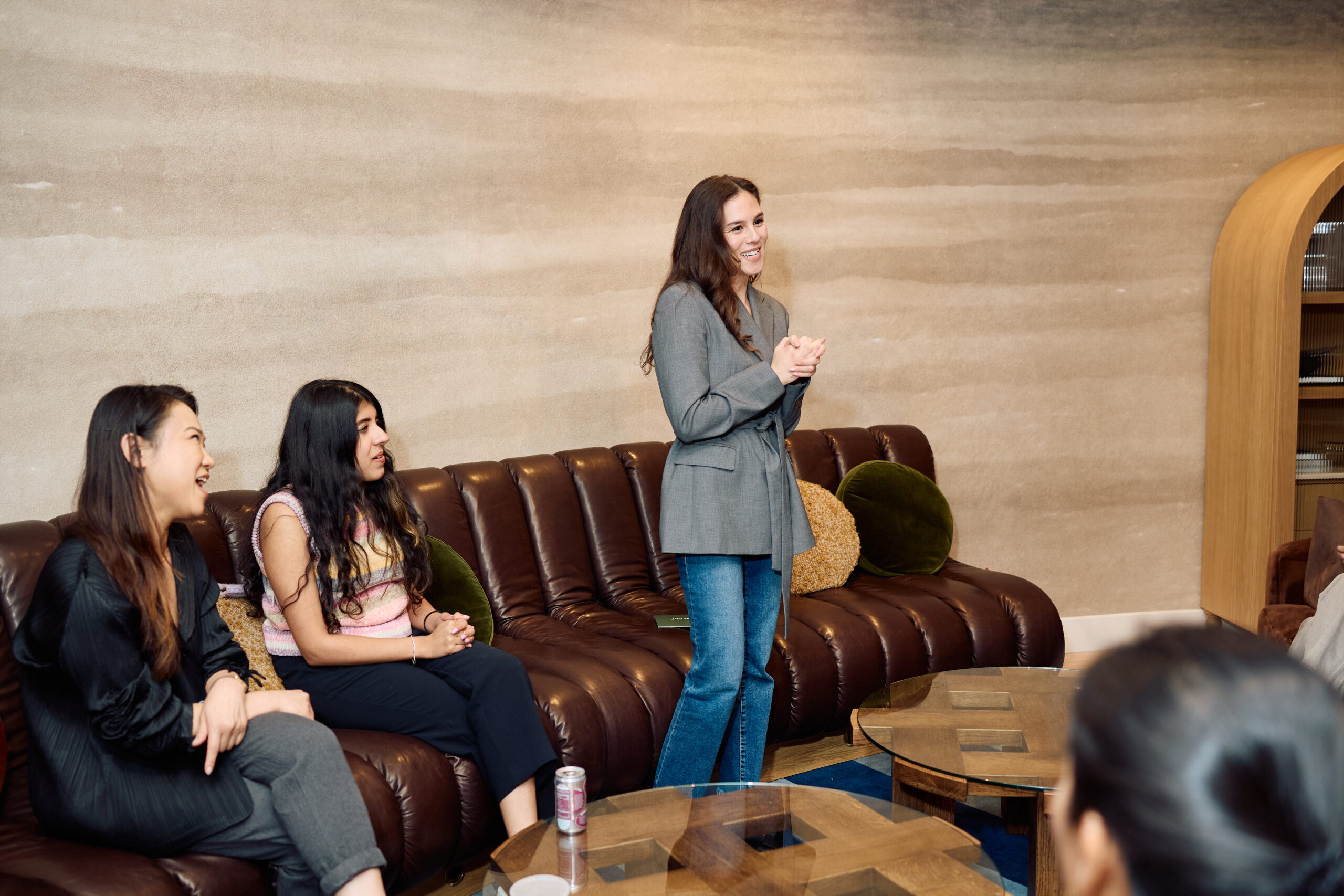

Bestari mentioned that entering FinTech can be intimidating because of its technical nature. “It just comes down to doing it,” Lakhani added. “The technology is always changing and so even the leading experts have to keep learning.”
“You have to be brave,” Beers added. “Just because you don’t necessarily have the perfect resume or experience doesn’t mean you should stay in your comfort zone. I would just say channel your inner mediocre white dude energy. Has that guy ever felt like he wasn’t qualified? Don’t hold yourself back just because it’s tech.”
Bestari then asked how both speakers, as leaders, manage the industry’s constant shifts.
“We think a week; one, six, and 12 months ahead,” Lakhani said. “So there’s always a plan but you always have to keep readjusting.” For her, remaining in dialogue with peers—other founders—is essential in gauging what’s next and what she should expect from thoses she’s hiring.
Beers added, “A lot of it is about prioritizing and sometimes letting certain things burn. Our superpower as women is building consensus. FinTech can feel more transactional than relational, but understanding your colleagues and customers helps you have perspective.”
The panel concluded with questions from the audience about role models, industry-specific conferences, and managing up. Guests and panelists continued the conversation informally, per Bestari’s suggestion. .
FinTech, by its nature, sits at the intersection of technological change and systemic shifts—two arenas where women have been historically underrepresented but are increasingly making their mark. The panel made clear that success in FinTech requires not only technical expertise but also a human-centered approach that values equity, access, and relationship-building. Women like Lakhani and Beers are helping to reshape the industry, proving that financial technology can be a tool for empowerment, not just efficiency.
CREDITS
Photographer: Marissa Alper


